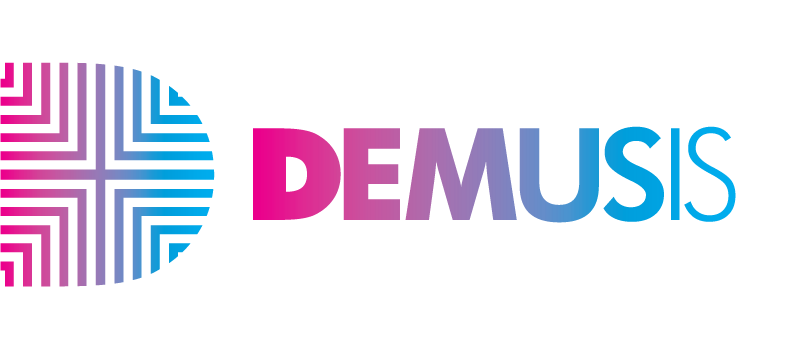Mantautas Krukauskas, Associated Professor from the Lithuanian Academy of Music and Theatre in Vilnius (P6) and Head of LMTA Music Innovation Studies Centre, carried out the first live teaching visit to Serbian academic partner institutions in the DEMUSIS project on 12-20 December 2021. Over 50 students of BA and MA modernized studies from the Academy of Arts University of Novi Sad (P2) and the Faculty of Philology and Arts University of Kragujevac (P3) and new MA study program Music Direction from the Faculty of Music University of Arts in Belgrade (P1) took part in lectures, workshops, demonstrations and discussions on innovative practices in music, ambisonics and spatial audio, sound design tools and other related topics in the field of digital skills for musicians and music production.
On 13 December he visited the Faculty of Philology and Arts in Kragujevac where he held lectures on Spatial music and sound, and Sound design techniques and tools to BA and MA students of Music performance, Music pedagogy and Music in media study programs. Both lectures were followed by Q & A sessions. The following day, a workshop on distance learning and music was organized as a follow-up to the teacher training previously held online.
The Academy of Arts in Novi Sad was Mantautas Krukauskas’ host on 15-16 December. On the first day of his guest teaching, he talked to students and teachers of Musicology, Composition and Music and Media master studies, concentrating on innovative practices in music and Spatial Audio, whereas the following day, students and teachers from the Department of Sound Design and Music Production had the opportunity to explore Spatial Audio more in depth, along with sound concepts and processing tools. The first part of the lecture focused on the human perception of sound and the idea of using technology in a way to create or reconstruct recorded and produced sound in a special setup. In addition, the history of the concept and the early analogue setups used during the 20th century were presented, with different concepts of how the first technical and artistic standards were being set. The second part of the lecture was directed to current technological concepts, with an emphasis on surround sound, ambisonics and VR. Using a basic surround setup provided at the premises, Professor Krukauskas demonstrated different software for ambisonic sound showing specifics on the software functioning. The final part of the lecture covered answering student questions and interests using various demonstrations and time based processing tools used in sound design and implementing it in surround sound concepts. The ensuing discussion and Q&A session lasted for 5 hours, in response to the audience enthusiasm.
The last three days of the teaching visit Assoc. Prof. Krukauskas worked closely with the students of the first and second year of the Music Direction master study program, introduced to the curriculum of the Faculty of Music in Belgrade in 2020/21 in the framework of the DEMUSIS project. Previously in 2019, Mantautas Krukauskas was appointed as a visiting professor at the Music Direction study program by the University of Arts in Belgrade Senate. His teaching covered a wide variety of activities with students and teachers including, but not limited to lectures, demonstrations, presentations with discussions and a final practical workshop on 19 December in the Faculty of Music Tone studio. This part of the teaching visit covered more advanced issues of previously laid out topics, aiming at creative thinking in using ambisonics and spatial audio, with the exchange of examples of good practices and current projects.
Faculty of Philology and Arts, University of Kragujevac 13-14.12.2021
Academy of Arts, University of Novi Sad 15-17.12.2021
Faculty of Music, University of Arts in Belgrade 17-19.12.2021

